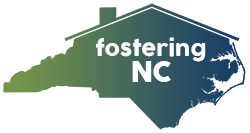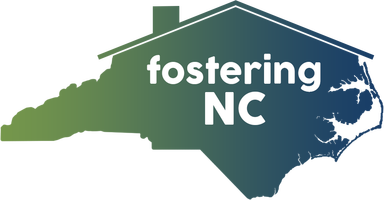Videos/Podcasts

About NC’s Foster Care System
CFSR Overview
This 16-minute video provides an overview of the Child and Family Services Reviews (CFSRs), which are periodic reviews of state child welfare systems conducted by the Children’s Bureau in partnership with states. It covers the history and purpose of the CFSRs, outcomes and systemic factors, the review process, and program improvement planning.
This 16-minute video provides an overview of the Child and Family Services Reviews (CFSRs), which are periodic reviews of state child welfare systems conducted by the Children’s Bureau in partnership with states. It covers the history and purpose of the CFSRs, outcomes and systemic factors, the review process, and program improvement planning.
NC Department of Health and Human Services Foster Parent Recruitment Videos
Fostering a child can seem like an enormous undertaking. However, for North Carolina youths in foster care their needs are actually far simpler. These videos reassure adults that they can fill the need as the little things are huge.
Fostering a child can seem like an enormous undertaking. However, for North Carolina youths in foster care their needs are actually far simpler. These videos reassure adults that they can fill the need as the little things are huge.
Partnering with… (Video Series)
Each video in this series discusses a system that commonly interacts with NC’s child welfare system. Developed for child welfare professionals, these videos offer resource parents helpful insights into systems that may serve their children.
Each video in this series discusses a system that commonly interacts with NC’s child welfare system. Developed for child welfare professionals, these videos offer resource parents helpful insights into systems that may serve their children.
- Partnering with Schools (6:46, features Sally Scholle from Chatham Co. Schools)
- Partnering with Juvenile Justice | Courts (10:01, features Donald Pinchback, NC Dept. of Public Safety)
- Partnering with Juvenile Justice | Youth Development Centers (10:19, features Rachel Kudler, Chatham Co. YDC)
- Partnering with Guardians ad Litem (9:28, features Nicole Roman, NC GAL Program)
- Partnering with Mental Health Providers (11:51, features Donna Potter, Center for Child & Family Health)
Upstream
This 3-minute rendition of a popular fable by Prevent Child Abuse NC illustrates the importance of prevention. When we go upstream and invest in proven strategies that help strengthen families, we prevent child abuse and neglect before it even happens.
This 3-minute rendition of a popular fable by Prevent Child Abuse NC illustrates the importance of prevention. When we go upstream and invest in proven strategies that help strengthen families, we prevent child abuse and neglect before it even happens.
Maintaining Connections
Youth Voice
Foster Strong
A podcast brought to you by alumni of foster care. Listen in as we show you what it means to embrace resilience as an identity. Come along as we share our journeys from trauma to triumph and introduce you to extraordinary alumni from across the country.
https://www.urfosterstrong.org/podcast
A podcast brought to you by alumni of foster care. Listen in as we show you what it means to embrace resilience as an identity. Come along as we share our journeys from trauma to triumph and introduce you to extraordinary alumni from across the country.
https://www.urfosterstrong.org/podcast
Well-Being
Child Medical Evaluations in North Carolina
This 13-minute video explains Child Medical Evaluations (CMEs) in North Carolina–what they are, who provides them, how to prepare for them, and how they can help you and your child. NOTE: while this video is intended primarily for birth families, resource parents will still find the information it provides useful.
This 13-minute video explains Child Medical Evaluations (CMEs) in North Carolina–what they are, who provides them, how to prepare for them, and how they can help you and your child. NOTE: while this video is intended primarily for birth families, resource parents will still find the information it provides useful.
Promoting Brain Gains for Youth Emerging from Foster Care
This 4-minute video discusses adolescent brain development and ways child welfare systems inhibit or encourage opportunities for the successful transition to adulthood.
This 4-minute video discusses adolescent brain development and ways child welfare systems inhibit or encourage opportunities for the successful transition to adulthood.
- Click here to download the report this video is based on: The Road to Adulthood: Aligning Child Welfare Practice with Adolescent Brain Development.
Pool Safety
This 7:17 minute video from the National Drowning Prevention Alliance teaches the “safer 3” approach to protecting children and others from potential hazards around pools and spas.
This 7:17 minute video from the National Drowning Prevention Alliance teaches the “safer 3” approach to protecting children and others from potential hazards around pools and spas.
Beach Safety: Rip Current Survival Guide
Learn how to avoid and escape from ocean rip currents in this 3-minute video from the National Oceanic and Atmospheric Administration.
Learn how to avoid and escape from ocean rip currents in this 3-minute video from the National Oceanic and Atmospheric Administration.
- For more water and pool safety tips and resources for parents and caregivers, please see this page from North Carolina’s State Fire Marshall.
Feel Safe Again: S’s Story
Every year, tens of thousands of young people experience homelessness. Alone on the street, youth can become victims of violence, develop serious mental health and addiction problems, and be forced to trade sex for food and shelter. This 2 min., 40 second video tells the story of one youth who found help through the National Runaway Safeline.
Every year, tens of thousands of young people experience homelessness. Alone on the street, youth can become victims of violence, develop serious mental health and addiction problems, and be forced to trade sex for food and shelter. This 2 min., 40 second video tells the story of one youth who found help through the National Runaway Safeline.
How Fostering Can Positively Impact Birth Children
In this podcast, a foster parent interviews her adult daughter, who talks about how being part of a foster home increased her comfort when transitioning to college, nurtured her enjoyment of diversity, taught her flexibility and resilience, and helped her become a more compassionate community member. (8 min.)
In this podcast, a foster parent interviews her adult daughter, who talks about how being part of a foster home increased her comfort when transitioning to college, nurtured her enjoyment of diversity, taught her flexibility and resilience, and helped her become a more compassionate community member. (8 min.)
Fostering Perspectives articles related to this topic:
The Hidden Cost of Resilience
This 38-minute podcast discusses resilience, the different factors that promote and foster resilience, how to help children and families cope with trauma, and the factors that put children at a higher risk of experiencing trauma. Dr. Ernestine Briggs-King also discusses what the latest research tells us about the long-term health issues that even the most resilient children may face.
This 38-minute podcast discusses resilience, the different factors that promote and foster resilience, how to help children and families cope with trauma, and the factors that put children at a higher risk of experiencing trauma. Dr. Ernestine Briggs-King also discusses what the latest research tells us about the long-term health issues that even the most resilient children may face.
Relaxing 14-Minute Body Scan
To support you as a trauma-informed parent, the National Child Traumatic Stress Network offers a short podcast in which Karla Johnston-Krase leads a guided relaxation that includes a body scan similar to something called Yoga Nidra, a style of relaxation with amazing benefits.
https://www.youtube.com/watch?v=Tw63APbHj4A
To support you as a trauma-informed parent, the National Child Traumatic Stress Network offers a short podcast in which Karla Johnston-Krase leads a guided relaxation that includes a body scan similar to something called Yoga Nidra, a style of relaxation with amazing benefits.
https://www.youtube.com/watch?v=Tw63APbHj4A

